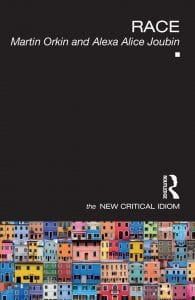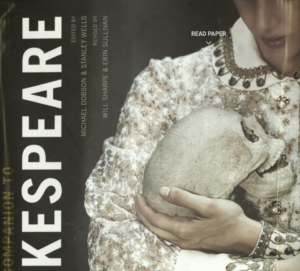 On a sunny afternoon in early June, 2015, in a rehearsal room at the University of Warwick, director Tim Supple was rehearsing a globally envisioned King Lear with a group of talented actors from Ukraine, France, Nigeria, South Korea, India, and other parts of the world. When the actress Hong Hye Yeon playing Kent lamented in an aside in act 1 scene 4 that ‘[i]f but as well I other accents borrow, / That can my speech defuse’ in Korean (commenting on her and Kent’s disguise as part of the character’s effort to serve and assist Lear), the Ukrainian Lear (Oksana) responded powerfully in Russian. The cross-cultural dialogue was rich and beautifully embodied by the actors, their choice of modern editions or translations of the play, and their individual acting styles. The entire multinational cast was cooking up something delicious and original.
On a sunny afternoon in early June, 2015, in a rehearsal room at the University of Warwick, director Tim Supple was rehearsing a globally envisioned King Lear with a group of talented actors from Ukraine, France, Nigeria, South Korea, India, and other parts of the world. When the actress Hong Hye Yeon playing Kent lamented in an aside in act 1 scene 4 that ‘[i]f but as well I other accents borrow, / That can my speech defuse’ in Korean (commenting on her and Kent’s disguise as part of the character’s effort to serve and assist Lear), the Ukrainian Lear (Oksana) responded powerfully in Russian. The cross-cultural dialogue was rich and beautifully embodied by the actors, their choice of modern editions or translations of the play, and their individual acting styles. The entire multinational cast was cooking up something delicious and original.
During the brainstorming session that followed, Supple asked: ‘What came before language?’ The question was designed to draw attention to multilingual spaces on and off stage and the implications of acting and doing Shakespeare in such a space. He asked the group to take note of what we might find ‘when we move away from [verbal] language’ and of the ‘seeds of what we might find’. The answers the group came up with were diverse and rich: emotions; physicality; body language; that which incarnates the words; what lies under the words; and, last but not least, clarity of intent. In other words, there is a rich non-verbal language that come before and alongside utterance, which is particularly true in the case of non-English-language or multilingual performances of Shakespeare. Continue reading →




 “My angel!” A woman’s voice is heard outside a hut in the snow in Kashmir in 1995, a landscape devoid of colors other than mostly black, white, and deep blue. Ghazala’s son, Haider, a lone fighter, is hiding inside the severely damaged hut. Having sustained gun-shot wounds, he is surrounded by the soldiers led by his uncle Khurram who plans to kill him with a shoulder-launch rocket, but Ghazala, caught in between her lover and her son who is intent on avenging his father’s death, convinces Khurram to give her one last chance to persuade Haider to give up his revenge plan and surrender. Soft spoken, Ghazala may not appear to be a particularly strong woman at first glance, but she is taking on the active role of a liaison, negotiator, and now a game changer.
“My angel!” A woman’s voice is heard outside a hut in the snow in Kashmir in 1995, a landscape devoid of colors other than mostly black, white, and deep blue. Ghazala’s son, Haider, a lone fighter, is hiding inside the severely damaged hut. Having sustained gun-shot wounds, he is surrounded by the soldiers led by his uncle Khurram who plans to kill him with a shoulder-launch rocket, but Ghazala, caught in between her lover and her son who is intent on avenging his father’s death, convinces Khurram to give her one last chance to persuade Haider to give up his revenge plan and surrender. Soft spoken, Ghazala may not appear to be a particularly strong woman at first glance, but she is taking on the active role of a liaison, negotiator, and now a game changer.
